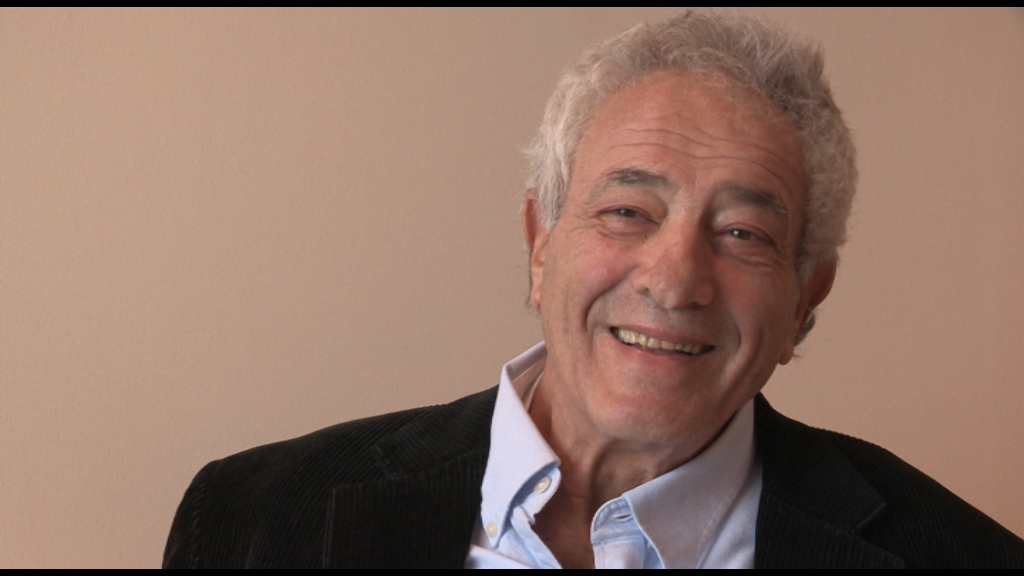NEXT STORY

The Satanic Verses
RELATED STORIES

NEXT STORY

The Satanic Verses
RELATED STORIES


|
Views | Duration | |
|---|---|---|---|
| 81. Quality cannot pay for itself | 15 | 03:53 | |
| 82. A student by day, a cab driver by night | 16 | 01:56 | |
| 83. The last ride | 42 | 06:01 | |
| 84. The dinner with Allen Ginsberg I wish I'd never had | 45 | 03:07 | |
| 85. CEO of Penguin Books: the early days | 29 | 04:02 | |
| 86. Why I published The War Between the Generals by David... | 25 | 04:17 | |
| 87. Analysis of the fallout of publishing The Satanic... | 19 | 06:52 | |
| 88. The Satanic Verses | 26 | 02:47 | |
| 89. Underestimating the reaction to The Satanic Verses | 23 | 03:51 | |
| 90. Rousing the ire of the ayatollah | 18 | 04:32 |


What developed out of our publication of Salman's book was not anticipated in any way by us, although it could be that Salman himself, coming out of a world in which Islam was a central determining factor in many people's lives, it could be that Salman had some intimation, not, certainly of the fatwa, but of a reaction, a negative reaction, that the book would have in certain circles. As a creative writer, comma… comma - I'm editing already. As a creative writer, he wouldn't necessarily have written the book differently, even if he had known everything that we came to know.
That's a central point in this discussion, because it is, to me, at least, all about not religion, not a personality, not Salman's or anyone else's, but about the principle of a writer's right to write whatever he pleases, a publisher's right to publish whatever he pleases, a bookseller's right to stock and sell and merchandise any book that seems to him to be important for cultural or commercial purposes, and the right of a reader - every reader - to read what he chooses to read, without a filter, without any intercession. These principles are very much ingrained in our Western society. And Salman, although he comes from the subcontinent originally, worked and practiced, and works and practices, within the confines and, you might say, moral rights of individuals, as we perceive both moral rights and the individual.
And the difficulty arose, in many cases, with respect to Islamic theology, which I'm hardly any expert on, because the separation of church and state, which is a cardinal factor in our lives in the West, is not accepted as an operative element of the lives of people in, within Islam. So that we have, in the case of this book, almost the first, at least in our time, effort by a minority to impose its will on a majority. Generally speaking, we accept the obligation to have the majority still protect minority rights. This was one where the minority felt it incumbent upon themselves to enforce the rights of the minority, even if it trampled on the rights of the majority.
This was further exacerbated by the fact that this was a work of fiction. And I don't know if Islam makes as much of a distinction between fiction and non-fiction as we do. And it also came not from the minority within a country, but a fatwa issued by the religious leader of another country. So, there were - what shall I say? - early tremors of what we are experiencing today, I don't want to say all over the world, but in many parts of the world. And it has led to violence and unstable governments and societies.
Well, we had no idea when we published The Satanic Verses that this book be a significant, or the significant factor in the revelation of what was to come.
Peter Mayer (1936-2018) was an American independent publisher who was president of The Overlook Press/Peter Mayer Publishers, Inc, a New York-based publishing company he founded with his father in 1971. At the time of Overlook's founding, Mayer was head of Avon Books, a large New York-based paperback publisher. There, he successfully launched the trade paperback as a viable alternative to mass market and hardcover formats. From 1978 to 1996 he was CEO of Penguin Books, where he introduced a flexible style in editorial, marketing, and production. More recently, Mayer had financially revived both Ardis, a publisher of Russian literature in English, and Duckworth, an independent publishing house in the UK.
Title: Analysis of the fallout of publishing "The Satanic Verses"
Listeners: Christopher Sykes
Christopher Sykes is an independent documentary producer who has made a number of films about science and scientists for BBC TV, Channel Four, and PBS.
Tags: The Satanic Verses, Islam, Salman Rushdie
Duration: 6 minutes, 52 seconds
Date story recorded: September 2014-January 2015
Date story went live: 12 November 2015